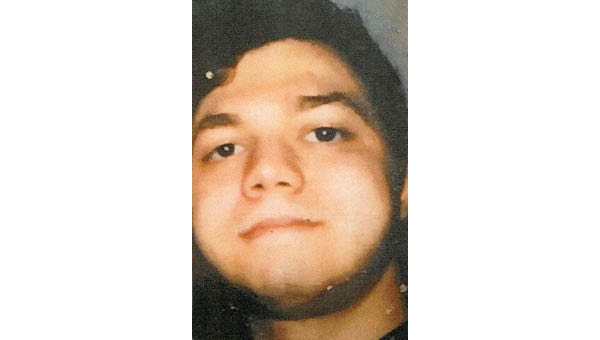Trump’s sickening move of pardoning January 6 rioters is a stain on history
Published 1:05 pm Tuesday, January 21, 2025
|
Getting your Trinity Audio player ready...
|
Regardless of who you voted for in the November election – Trump or Biden – their actions have left a bad taste in many Americans’ mouths. Biden pardoned a number of offenders before he left office. Some had been convicted of heinous crimes.
Then, President Donald Trump issued pardons to roughly 1,500 rioters who attacked the U.S. Capitol on January 6, 2021, including many convicted of violent crimes such as assaulting police officers. To many, the pardons were an act of betrayal by a president, who can be seen as a sore loser in the 2020 presidential election.
Whether you voted for Trump because he promised these pardons or for some other reason, we knew that this was coming, and here we are.
Earlier this month, Trump’s vice president, JD Vance said, “If you committed violence on that day, obviously you shouldn’t be pardoned.”
Many of Trump’s critics on social media spoke out against the move: It is and will remain a deep stain in our history.
No number of pardons or lies will change what happened on January 6. Donald Trump can’t change history. It was domestic terrorism, it was treason, plain and simple.
Trump said he included six commutations in the pardon package so that their cases could be studied further. Among those whose sentences were commuted were the leaders of the far-right Oath Keepers and Proud Boys, who had been charged with seditious conspiracy.
Stewart Rhodes, the Oath Keepers’ founder, was in the middle of serving an 18-year prison sentence.
Outside the commutations, Trump’s pardon is sweeping in scope. It applies to “all other individuals convicted of offenses related to events that occurred at or near the United States Capitol on January 6, 2021.”
Earlier during the day, Trump told supporters that he was asked not to include mentions of January 6 “hostages” in his official inaugural address.
During the presidential campaign, Trump described imprisoned January 6 defendants as “political prisoners,” asserting they were “ushered in” to federal buildings by police. We know that was not true.
It was a day we won’t soon forget as the President’s best buddy, Elon Musk, was accused of giving a “Nazi Salute” at Trump’s inauguration celebration.
Should presidents be able to give pardons to persons convicted of crimes by the courts? To some, it is a mockery of justice. It’s not the first time presidential pardons have been given to convicted criminals.
Democratic president Franklin D. Roosevelt granted 3,687 pardons in his almost 4 terms in office. Among them are: George R. Dale – newspaper editor convicted of violating Prohibition laws in 1932; pardoned in 1933 after the repeal of Prohibition.
Barack Obama granted clemency to 1,715 people, including 504 life sentences and 212 were pardons. Most individuals granted executive clemency by Obama had been convicted on drug charges, and had received lengthy and sometimes mandatory sentences at the height of the war on drugs.
As president, Bill Clinton used his power under the U.S. Constitution to grant pardons and clemency to 456 people, thus commuting the sentences of those already convicted of a crime, and obviating a trial for those not yet convicted.
Trump in his role as 45th president granted executive clemency to 237 and over 1,500 individuals charged or convicted of federal criminal offenses respectively, using his clemency power under Article II, Section 2.
Pardons can be viewed as a tool to overcome judicial error, allowing a grant of freedom to someone who is believed to be wrongly convicted or subjected to an excessive penalty. Pardons can also be a source of controversy, such as when granted in what appears to be a political favor as in the case of Trump pardoning the January 6th rioters.
The president’s pardon power is a near-blank check hidden among the Constitution’s checks and balances. Despite substantial hand-wringing about possible abuses of the power, scholars have almost entirely overlooked the most potent tool in the President’s pardon power arsenal: the ability to attach conditions to clemency grants (the “conditional pardon power”). As a subset of the general pardon power, the conditional pardon power is assumed to be similarly “unfettered,” “plenary,” or “unlimited.” This cannot be correct.
Thus, it doesn’t seem right that the court convicts people of wrongdoings, and the president has the power to set them free, no matter how bad the crime. One president called pardons “forgiveness,” but ask the Washington D.C. policemen who were assaulted on Jan. 6, 2021, if they thought the pardons were an act of forgiveness. They probably think not. Something is just not right here.
Rozella Hardin




